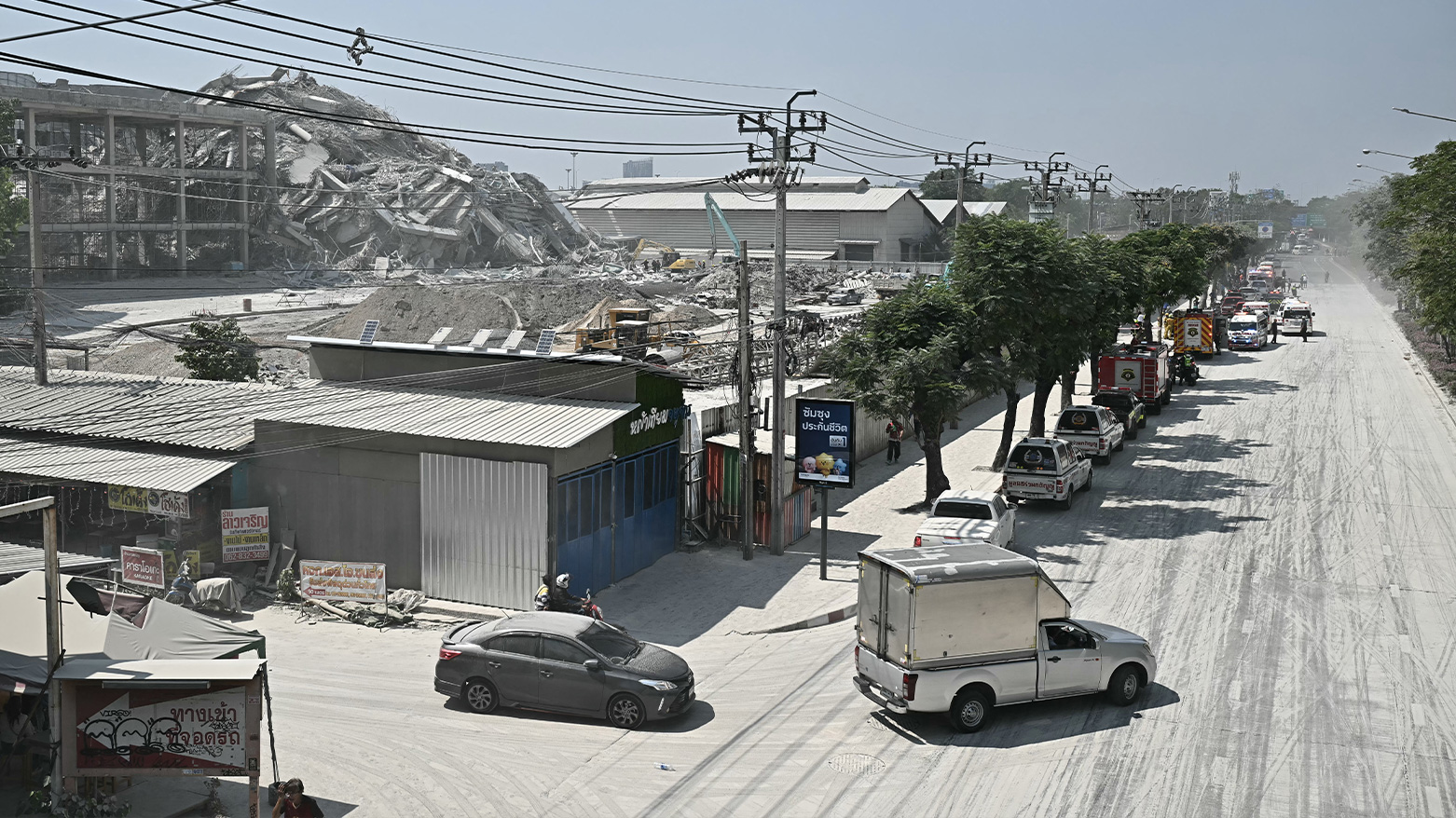Thai PM Orders Nationwide Mobilization After Earthquake Rattles Country
Speaking from Phuket, Thai PM Shinawatra confirmed a building collapse in Bangkok’s Chatuchak district due to the earthquake and declared it an emergency zone. She swiftly extended emergency measures nationwide to enable prompt local response.

By Kamaran Aziz
ERBIL (Kurdistan24) — Thai Prime Minister Paethongtarn Shinawatra made an urgent national address from Phuket on Thursday, the Thai News Agency reported, ordering the full mobilization of emergency agencies after a powerful 7.7-magnitude earthquake struck northwestern Myanmar and sent tremors rippling across Thailand, causing structural damage and widespread panic.
According to the United States Geological Survey, the quake’s epicenter was located northwest of Sagaing, Myanmar, approximately 250 kilometers from Myanmar's capital Naypyidaw. A 6.4-magnitude aftershock followed shortly afterward. The seismic shock was so powerful that it rattled buildings in neighboring countries including Thailand and China.
Speaking from Phuket, Prime Minister Shinawatra confirmed that the earthquake had caused a building collapse in Bangkok’s Chatuchak district and declared the area an emergency zone. She immediately extended emergency provisions nationwide to allow all local agencies to assist the public without delay.
"We must act swiftly and comprehensively," the Prime Minister stated in a televised press conference. "The Ministry of Interior has been instructed to treat the entire country as under emergency provisions, allowing local agencies to assist the public without delay."
She ordered the Ministry of Digital Economy and Society to issue emergency SMS alerts nationwide while directing all government media outlets to broadcast safety instructions and earthquake awareness information.
Recognizing the risk of aftershocks, Shinawatra urged the public to remain vigilant. "Aftershocks often happen within two hours of the initial quake and gradually decrease in strength. Citizens must be alert and follow safety protocols," she said.
Military units were placed on standby. The Ministry of Defense, under the direction of the Commander-in-Chief of the Armed Forces, has been instructed to prepare security forces for deployment. The Ministry of Natural Resources and Environment was also tasked with monitoring seismic activity and forecasting potential developments.
Transportation infrastructure remained largely unaffected. The Ministry of Transport confirmed that Suvarnabhumi Airport was operating normally, and both air and ground travel services continue uninterrupted, though heightened safety supervision is in place.
The Ministry of Public Health activated emergency medical protocols, mobilizing hospitals and mobile medical units across regions deemed high-risk. "Our health services are on alert to handle any potential injuries or emergencies," Shinawatra added.
The Prime Minister directed Thailand’s National Broadcasting Services (NBT) to operate as a 24-hour information center to provide real-time updates and advisories to the public.
Meanwhile, scenes of devastation and human suffering have emerged from Myanmar. According to a report by Agence France-Presse (AFP), hundreds of wounded flooded a 1,000-bed hospital in Naypyidaw, many arriving in bloodied clothes, writhing in pain or lying motionless on stretchers. The hospital itself suffered structural damage, with parts of the emergency department collapsing and crushing vehicles.
Medical staff told AFP they were overwhelmed by the scale of the disaster. “Many injured people have been arriving, I haven't seen anything like this before,” one doctor said. “We are trying to handle the situation. I'm so exhausted.”
Myanmar’s military chief Min Aung Hlaing visited the hospital to survey the damage and speak with the wounded. Elsewhere in Naypyidaw, cracks tore through buildings and ceiling panels crashed to the ground in public spaces, including the National Museum.
In Thailand, reports emerged of a 30-story tower under construction in Bangkok’s Bang Sue district collapsing, with trapped voices heard from under the rubble. Deputy police chief Worapat Sukthai told AFP, “I heard people calling for help, saying help me. We estimate that hundreds of people are injured but we are still determining the number of casualties.”
As a precaution, Prime Minister Shinawatra urged citizens to evacuate tall buildings and called on all schools to send students home immediately. "Please stay calm, but be cautious," she said. "We will continue to provide updates as the situation evolves."
She concluded by announcing her immediate return to Bangkok and the convening of a national emergency coordination meeting at 5:00 p.m. local time. “All ministries and agencies are prepared. This is a national effort,” she affirmed.
As assessments continue, the earthquake has reignited concerns over the region’s vulnerability to seismic activity. The Thai government has pledged full transparency and decisive action in the face of this disaster, as the region braces for potential aftershocks and more distressing news from Myanmar.